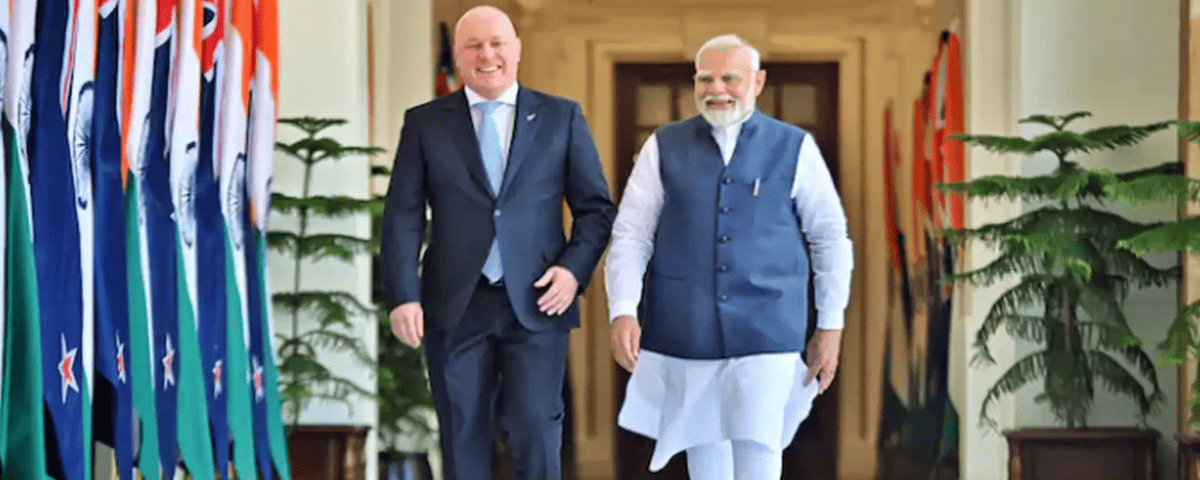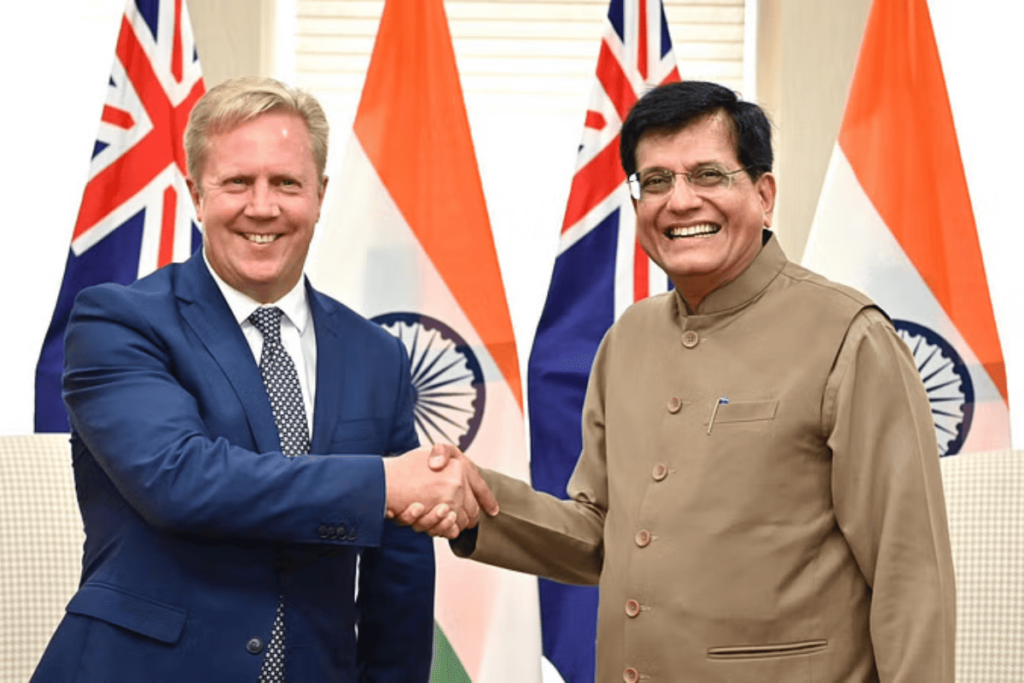
Table of Contents
After nearly 10 years, India and New Zealand resume FTA negotiations to strengthen economic ties. This exciting development comes as the two nations seek to boost trade, improve market access, and create new opportunities for businesses and consumers. But what does this really mean? Let’s break it down in a simple and engaging way.

A Free Trade Agreement (FTA) is like a friendship pact between two countries, where they agree to reduce or eliminate taxes (tariffs) on each other’s goods and services. This makes trade cheaper and easier, helping businesses grow and customers get better products at lower prices.
India and New Zealand resume FTA negotiations with the goal of making trade smoother, fostering economic growth, and creating a win-win situation for both countries.
The announcement came just before a meeting between Indian Prime Minister Narendra Modi and New Zealand’s Prime Minister Christopher Luxon. Commerce Minister Piyush Goyal and New Zealand’s Minister of Trade and Investment Todd McClay discussed the importance of restarting negotiations.
Goyal even posted on ‘X’ (formerly Twitter): “With bilateral trade surpassing $1 billion, India and New Zealand resume FTA negotiations to unlock new business opportunities and mutual prosperity.”
While the idea of an FTA sounds great, there are a few hurdles along the way. India and New Zealand resume FTA negotiations, but they must tackle some sensitive issues:
If successful, the FTA could benefit both nations in several ways:
While there are challenges, the commitment from both nations signals a positive future. Experts believe that India and New Zealand resume FTA negotiations with a fresh perspective, aiming for balanced trade benefits.
New Zealand has already made trade agreements with several countries, and India is eager to strengthen its global presence. With careful discussions and compromises, both nations can turn this opportunity into a success story.
The fact that India and New Zealand resume FTA negotiations after a decade shows their strong interest in improving trade ties. While negotiations may take time, the potential benefits make this an exciting chapter in their economic relationship.

Authored by, Amay Mathur | Senior Editor




Amay Mathur is a business news reporter at Chegg.com. He previously worked for PCMag, Business Insider, The Messenger, and ZDNET as a reporter and copyeditor. His areas of coverage encompass tech, business, strategy, finance, and even space. He is a Columbia University graduate.
Editor's Recommendations
Chegg India does not ask for money to offer any opportunity with the company. We request you to be vigilant before sharing your personal and financial information with any third party. Beware of fraudulent activities claiming affiliation with our company and promising monetary rewards or benefits. Chegg India shall not be responsible for any losses resulting from such activities.
Chegg India does not ask for money to offer any opportunity with the company. We request you to be vigilant before sharing your personal and financial information with any third party. Beware of fraudulent activities claiming affiliation with our company and promising monetary rewards or benefits. Chegg India shall not be responsible for any losses resulting from such activities.